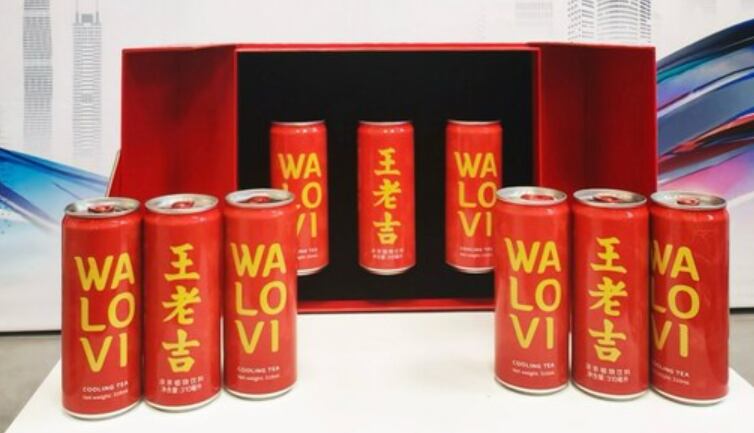Owned by Guangzhou Wanglaoji Health Industry, Wanglaoji is best known for its canned and bottled herbal “cooling tea” that comes in red packaging, although there are also other series such as vitamin C drink Ciningji and coconut juice launched under the brand.
Outside of China, the products are sold in South East Asia, Australia, North America, and Europe.
As part of its internationalisation plans, the brand plans to build 56 herbal tea museums to spread Eastern health philosophy and recently signed to set up one of these museums in Bangkok.
Wanglaoji says the SEA region is a key overseas market.
Among which, Myanmar, Laos, and Cambodia are the brand’s top three markets in the region. Its products are sold in supermarkets, convenience stores, and food services etc.
However, Indonesia is fast catching up, the company revealed.
“At present, Wanglaoji’s top three markets in South East Asia are Myanmar, Laos, and Cambodia. However, Indonesia is growing rapidly and has the potential to become the largest market in terms of sales in Southeast Asia within the next year or two," said the company.
The company explained that reasons driving consumption include the hot weather in the region, similarities in living habits, and close geographical location which allows the company to better penetrate the market and conduct marketing activities.
In Indonesia, herbal products, such as the jamu herbal drink made from turmeric root, ginger, have a long history and are commonly consumed for anti-inflammation.
Home-grown company Sido Muncul is also a household name for its traditional herbal medicine product Tolak Angin that claims to relieve bloating, flu, and dry throat.
Wanglaoji, on the other hand, contains water, sugar, grass jelly, safflower, comfrey, chrysanthemum, honeysuckle, prunella vulgaris, and licorice as its main ingredients.
Guangzhou Wanglaoji Health Industry, the parent firm of Wanglaoji, is part of Guangzhou Pharmaceutical Holdings Limited (GPHL) – a wholly China state-owned enterprise.
SEA goals
Wanglaoji added that its goal in SEA was to become a well-known natural plant drink and it would strive to penetrate the region’s mainstream beverage market through locally adapted marketing.
“Our goal is to establish Wanglaoji as a well-known natural plant drink in the Southeast Asian market. Initially, we mainly carried out and enhanced our business in Southeast Asia through general export trade.
“But now, we are focusing on the local beverage consumers in Southeast Asia through in-depth co-operation with local distributors and developing locally adapted marketing to open up mainstream beverage markets,” said the company.
At the same time, the company is planning for local production to reduce cost and improve supply chain in the region.
“With the aim of reducing product costs and further enhance our competitiveness, we are actively progressing with the local filling supply projects in the Southeast Asian market by achieving the local supply of Wanglaoji in the region.”
English brand WALOVI launched
Wanglaoji has been beefing up its global presence recently, with the launch of WALOVI in Los Angeles on April 8. It also opened its second herbal tea museum in New York two days later.
According to the company, WALOVI and Wanglaoji are essentially the same in flavour and formula. However, WALOVI was established as the “English brand identity” of Wanglaoji for penetrating into international markets.
Prior to WALOVI, Wanglaoji is already available for sale in the US, including Costco and H Mart, as well as online via Amazon, Yamibuy, and Wee.
"China's Wanglaoji is also the world's WALOVI! We believe that Wanglaoji will establish even closer connections and interactions with American and global consumers, invigorating the international market with vitality, and making more international consumers fall in love with natural plant beverages from China," said Weng Shaoquan, chairman of Guangzhou Wanglaoji Great Health Industry Co Ltd.
The WALOVI brand is also set to launch in Australia in the second half of this year.
Meanwhile, Wanglaoji also plans to launch sugar-free, low-sugar, and sparkling WALOVI in the overseas markets.



